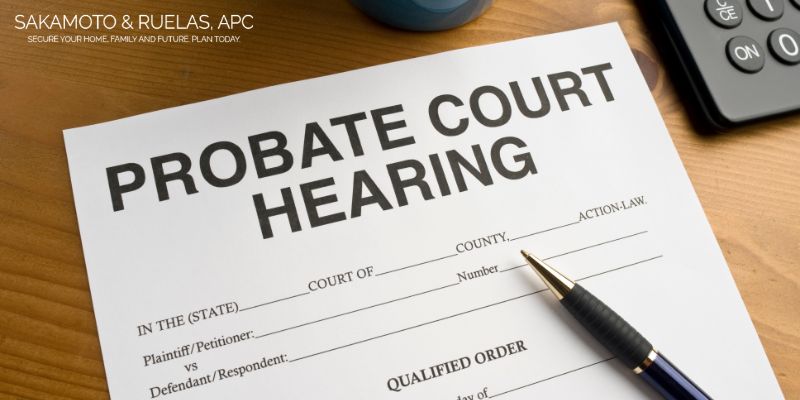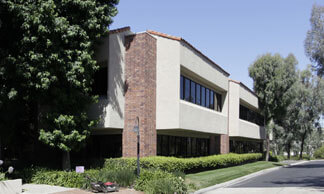Call us today(714) 994-4900
Fullerton Probate Lawyer

Fullerton Probate Attorney
For delicate legal matters like estate planning, wills, and trusts in the fast-paced Fullerton, CA, area, choosing to work with a Fullerton probate lawyer who has integrity and a reputation for success can be one key to protecting your interests and your family’s future. This can be especially true when a beloved family provider passes, and the assets that your family depends on must enter the probate process.
When these sensitive issues are further complicated by matters like litigation or guardianship disputes, you may rapidly find yourself in need of seasoned lawyers. They can guide you through challenges and uncertainties with equal parts personal compassion and powerful, assertive legal advocacy.
Even routine and straightforward estate planning matters can benefit immensely from the touch of a talented legal team. One example would be drafting a great last will and testament to keep your estate and family protected from a tedious and uncertain probate process.
Sakamoto & Ruelas, APC: Your Fullerton Probate Attorneys
Sakamoto & Ruelas, APC, can offer you this high level of legal service. Our women-owned law firm has built a unique legal brand that combines high-end legal solutions with a friendly, approachable service model. Our team works to put our clients at ease and increase their confidence as we move forward in a collaborative and proactive way to address their estate planning needs.
Partners Sophia Kim Sakamoto and Stephanie L. Ruelas boast over a quarter-century of combined law experience, and they are ready to put it to work addressing the vast and varied estate planning needs of Fullerton residents. Sakamoto & Ruelas, APC, is available to offer high-quality assistance, whether you’re:
- Setting up a trust to protect your family’s wealth for future generations
- Navigating complex processes like guardianship or conservatorship
- Seeking great counsel while you draft your will
Understanding California Probate Law
California’s probate courts, just like other areas of the state’s legal system, can become an arena for intricate and complicated matters to get worked out. In California and other states, probate is a special legal process through which the assets of someone who has recently passed away are identified, inventoried, and distributed to heirs and/or beneficiaries.
Probate ensures that any outstanding debts or taxes against the decedent’s estate are settled and that any remaining value gets allocated correctly, either per the wishes set forth in the decedent’s will or, in the absence of a will, per California’s intestacy laws.
Key Facts About the Probate Process in Fullerton
Some key facts about the California probate process you’ll want to keep in mind include:
- Value Threshold: Probate is mandatory for any estates with a fair market value of $184,500 or more. Check with your attorney for up-to-date rules, as the state does adjust this threshold from time to time.
- Small Estates: Estates that fall below the aforementioned threshold may be eligible for a simplified probate-like process, using a legal tool called a small estate affidavit.
- Executor vs. Administrator: If the decedent left a legally binding and properly prepared will, there will be an executor named therein. They can usually follow through on the terms of the will relatively quickly. When no valid will exists, and estates need to be divided and distributed via the probate court, the court will name an administrator who serves a similar function.
- Inventory and Appraisal: The executor or administrator handling the probate case needs to have the decedent’s assets fully inventoried, filed with the court, and appraised under the supervision of an official probate referee. The window for doing this is 4 months in most cases.
- Notice Requirements: The executor or administrator must notify all creditors, beneficiaries, heirs, and other involved parties about the probate proceedings, and they must do so within a court-mandated timeframe.
- Waiting Periods: Probate court can be a frustrating process, in part because long periods of waiting are punctuated by occasional, fast-moving legal proceedings. One of these waiting periods involves giving creditors time (typically 4 months) to file their claims against the estate after being served notice of the probate case being opened.
- Doing Your Research: If you’d like to look more deeply into the probate process, the laws and regulations that oversee California probate court proceedings are compiled in the California Probate Code, a comprehensive document that is available on the state’s website.
- IAEA Probate Compliance: The Independent Administration of Estates Act, or IAEA, determines the exact level of authority and autonomy that executors and administrators have when handling matters like selling off assets without court approval. Administrators who act in violation of the IAEA or other laws can be held accountable in court.
- Probate Fees: In California, probate fees are calculated as a percentage of the estate’s total value. This works on a sliding scale:
- 4% of the first $100,000
- 3% of the next $100,000
- 2% of the next $800,000
- 1% of the next $9,000,000
- 0.5% of the next $15,000,000
- Example: an estate valued at $1 million dollars would incur probate fees of $4,000 on the first $100,000, plus $3,000 on the second $100,000, plus $16,000 on the remaining $800,000, for a total of $23,000 in probate fees.
Dealing with the complex steps of the probate process in California can be overwhelming, especially during an already challenging time while you’re still healing from the loss of a beloved family member. The aid of a seasoned probate attorney can help you gain clarity and confidence as you move ahead with sorting these important matters.
FAQs
Do I Need a Lawyer for Probate in California?
No, as with any other legal matter, you are free as an American to represent yourself in a court of law. However, it’s important not to underestimate the complexity and potential for difficult challenges when entering into a probate case, especially if family disputes or litigation scenarios arise.
For estates with straightforward assets and clear beneficiary designations, some individuals might be able to manage the process without outside legal assistance. Most people will find that working with a quality lawyer makes the process significantly easier and less stressful, however.
The quality legal team at Sakamoto & Ruelas, APC, can guide you through the probate process, including helping you find effective strategies to overcome any unexpected issues that arise.
Who Pays for a Probate Lawyer in California?
In many cases, the cost of a probate lawyer can be paid from the estate’s assets. In California, both an executor and probate attorney are entitled to charge fees, which are set by state law and based on the gross fair market value of the property and financial instruments that the decedent leaves behind. These fees are taken from the estate before the remaining assets are distributed to creditors, heirs, and beneficiaries.
If you hire personal representation in a probate case, you will be responsible for any fees paid to your private legal counsel. However, seasoned legal advice from an experienced probate attorney can help you more effectively resolve your dispute, potentially leaving you with more money or assets than you would otherwise.
How Much Is a Probate Lawyer in California?
The cost of most types of legal services can vary wildly from case to case based on factors such as local market conditions, total time spent in court, and your lawyer’s popularity. However, the cost of probate fees in California is determined by statute, with fees calculated as a percentage of the estate’s gross value (determined by an appraisal process overseen by the probate court).
The fee structure is based on a sliding scale, where the first $100,000 in estate value is “taxed” more heavily than the rest of the estate, with 4% being the highest rate. The team at Sakamoto & Ruelas, APC, can help you learn more about this fee structure.
Is Probate Required in California?
Yes and no. While probate is indeed made mandatory by law, not every estate is required to go into probate in California. This will depend primarily on the total value of the assets involved. In 2023, for example, the threshold for estates to enter probate is $184,500. Any estates valued under this threshold can be settled through a simplified (and quicker) process.
If you don’t know whether your recently deceased loved one’s estate needs to go into probate, or if you are unsure how to begin the probate process, the probate law team at Sakamoto & Ruelas, APC, can help you take the first steps.
Sakamoto & Ruelas, APC: Powerful Probate Strategies for Fullerton, CA, and Beyond
In the confusing and ever-evolving world of California probate law, having a trusted advisor by your side can prove invaluable for overcoming any number of challenges or unexpected scenarios. Sakamoto & Ruelas, APC, is dedicated to staying on top of the latest in probate law. Coupled with their deep-rooted commitment to their clients and the local community, this makes them the smart choice for Fullerton residents with probate questions. Contact a member of our friendly and knowledgeable staff today for a no-pressure consultation.
Fullerton
Practice Areas
Request a Consultation
Fields Marked With An ” *” Are Required
Sakamoto & Ruelas, APC
Secure Your Home, Family And Future. Plan Today.
Contact Us
Call Our Office At (714) 994-4900

Cerritos Office
Main Office
18115 Valley View Avenue
Suite 201
Cerritos, CA 90703
Phone: (714) 994-4900




